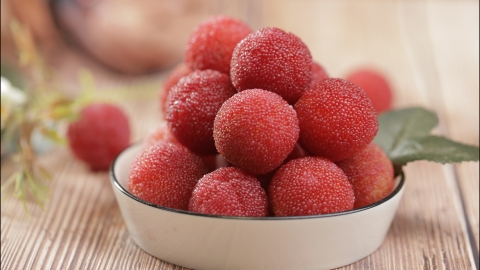Can I eat waxberry while taking medication for hypertension?
Generally speaking, whether one can eat Chinese bayberry (Myrica rubra) while taking antihypertensive medication depends on the nature of the medication. Specific situations are as follows:

If the antihypertensive drug being taken is a calcium channel blocker and the patient's blood pressure is well-controlled without comorbidities such as renal insufficiency, hyperkalemia, or gastrointestinal ulcers, then moderate consumption of Chinese bayberry is usually acceptable. Chinese bayberry is rich in various organic acids, cellulose, vitamin C, and trace elements such as calcium, phosphorus, and iron. These components help enhance the permeability of capillaries, maintain cardiac function, and participate in metabolic processes.
However, certain antihypertensive medications, such as dihydropyridines, may interact with acidic substances in Chinese bayberry. In such cases, consuming Chinese bayberry is not recommended to avoid affecting drug efficacy or causing adverse reactions. Some individuals may be allergic to Chinese bayberry and may experience allergic reactions such as skin swelling, itching, or difficulty breathing after consumption, and in these cases, it is also not advisable to eat Chinese bayberry.
In daily diet, maintaining a balanced diet and moderately diversifying food intake is beneficial for maintaining overall health and managing diseases.







